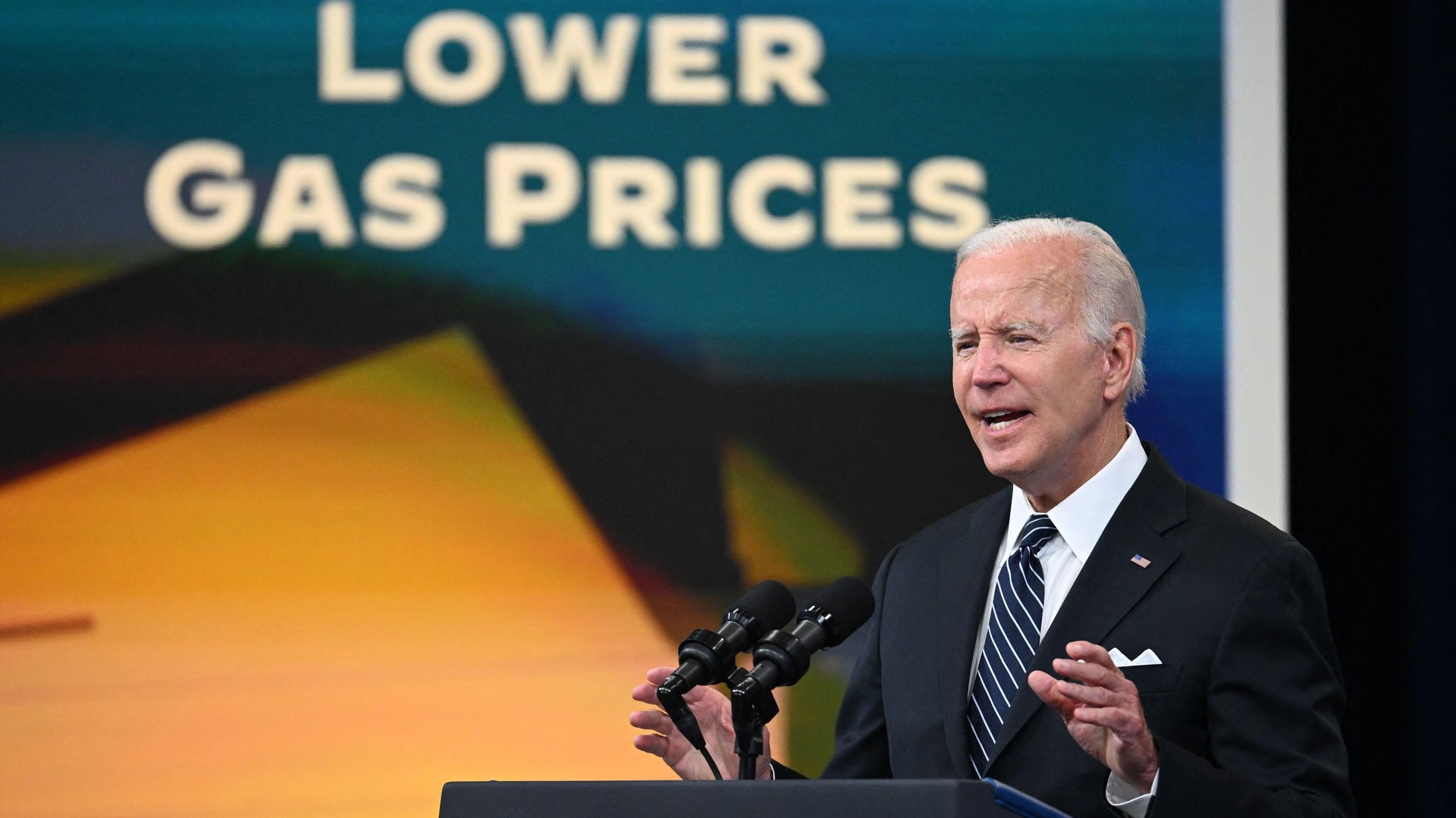Dipping into its oil reserves is America’s strongest response to OPEC cuts for now
US president Joe Biden had planned in March to release 180 million barrels of oil over the next six months

US president Joe Biden is set to release 15 million barrels of oil from the country’s strategic reserves today (Oct. 19) for delivery in December.
The latest draw is a bid to counter drastic production cuts by OPEC+ nations. Any move by the cartel influences prices, and that pressure is felt by Biden ahead of the November midterm elections.
Come winter, more oil sales could be on the table “if needed due to Russian or other actions disrupting global markets,” the White House said.
By the digits
180 million: barrels authorized for release by Biden back in March have now been exhausted with the latest 15 million
36%: how much the strategic petroleum reserve (SPR) has declined by since Biden took office
400 million: barrels of oil left in the US strategic reserve—the lowest since 1984
19.89 million: barrels of oil the US consumed daily in 2021, suggesting the 15 million release won’t even satiate one day’s appetite
2 million: barrels a day OPEC+ cut back on
$3.854: national average gas price—high, but still lower than the June peak of $5
$67 to $72: the price at or below which the US government will restock the strategic reserve
12 million: daily US oil production, 1 million shy of pre-pandemic levels
Quotable
“This repurchase approach will protect taxpayers and help create certainty around future demand for crude oil. That will encourage firms to invest in production right now, helping to improve U.S. energy security and bring down energy prices that have been driven up by Putin’s war in Ukraine.” —White House statement
US foreign policy slips on oil
The 23-nation oil cartel maintains that its decision is purely economical. Several national leaders that form the group have publicly backed this intent.
However, the US is convinced there’s a political sheen to it. After all, Russia, whose February invasion of Ukraine wreaked havoc in worldwide oil supplies, stood to gain the most from the decision as it could enjoy higher prices at its already-low output.
Biden’s rebuke of big oil
Oil prices aren’t only affected by SPR releases. Market forces, recession fears, and reopening of refineries under maintenance all play a part in the cooling off, too.
And in addition to releasing reserves and replenishing stock, there’s another way to bring prices down: taking from the deep pockets of oil giants. Biden has called on companies to pass on lower energy costs to consumers “right away”:
The profit that energy refining companies are now capturing on every gallon of gasoline is about double what it typically is at this time of year, and the retailer margin over the refinery price is more than 40 percent above the typical level. These outsized industry profit margins–adding more than $0.60 to the average price of a gallon of gas–have kept pump prices higher than they should be. Keeping prices high even as input costs fall is unacceptable, and the President will call on companies to pass their savings through to consumers–now.
The US’ alternative energy plan
In 2020, fossil fuels accounted for 79% of total energy consumption in the US. But Biden still plans to move to the US to a 100% clean economy with net-zero emissions by 2050.
However, the transition won’t be without hiccups. Alternative sources of energy such as solar, wind, and ethanol remain less popular because they’re more expensive and less efficient. Nuclear energy faces its own set of restrictions.